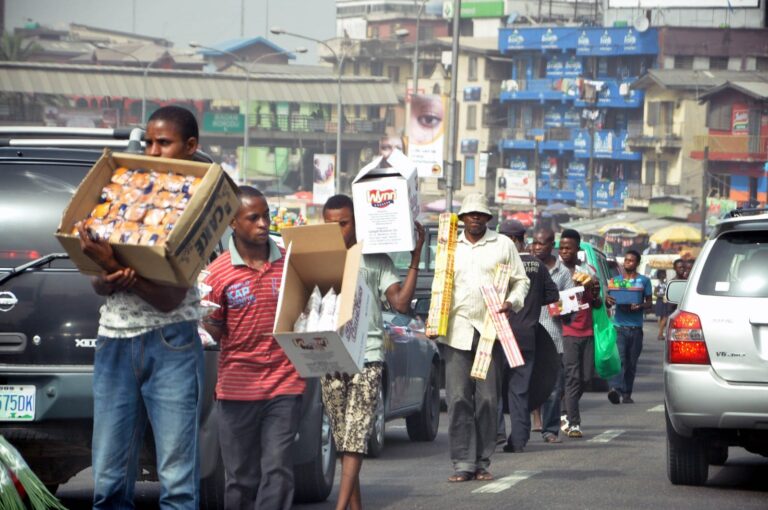Africa’s bustling street markets and neighborhood kiosks have long been the lifeblood of trade, yet they’ve often been excluded from modern supply chains. Now, a new wave of startups is bringing digital efficiency to this vast informal economy—transforming how goods move from factory floors to roadside stalls.
In Nigeria, companies like OmniRetail and TradeDepot are redefining the business of retail. By linking manufacturers directly with shop owners through mobile platforms, they’re giving small traders the same access to inventory, payments, and logistics once reserved for big supermarkets.
The Scale of Opportunity
The International Labour Organisation estimates that 86% of Africa’s workforce operates in the informal sector, with retail alone accounting for as much as 80% of consumer sales in some countries. In Nigeria, that means nearly 8 million small-scale traders—from corner shops to market vendors—form the backbone of commerce.
These traders may lack storefronts or formal addresses, but collectively, they drive billions in sales. For multinational firms like Guinness Nigeria, Flour Mills of Nigeria, and Coca-Cola, the opportunity is too big to ignore.
How Startups Are Connecting the Dots
OmniRetail, headquartered in Lagos, has built a platform that now serves 150,000 retailers across Nigeria, Ghana, and Ivory Coast. By connecting 130 manufacturers with banks and logistics providers, it processed ₦1.3 trillion ($849 million) in transactions last year.
The results are tangible:
-
Guinness has cut distribution costs by 20%.
-
Flour Mills has used OmniRetail’s real-time data to expand into new West African markets.
-
Retailers are gaining faster access to goods, boosting their income in economies where many live on less than $2 a day.
Another player, Koolboks, is tackling one of the sector’s toughest challenges: food preservation. Its solar-powered refrigerators—built for markets without reliable electricity—help traders store drinks and perishable foods, extending shelf life and increasing sales. Backed by partnerships with Coca-Cola, Guinness, and Flour Mills, Koolboks plans to ramp up production from 7,000 to 72,000 units annually, funded by an additional $30 million expansion round.
More Than Profit—A Social Safety Net
These innovations aren’t just about efficiency. For traders like roadside food vendors or small kiosk operators, better supply chains mean higher earnings, more stable livelihoods, and improved food security. In countries with high unemployment and persistent poverty, the ripple effects are enormous.
Adetilewa Adebajo, CEO of CFG Advisory in Lagos, explains: “Consolidation of services enhances efficiency for manufacturers and reduces costs for retailers, particularly the last-mile traders. The case for digitization is even stronger given our weak transport systems.”
Challenges on the Horizon
But the story isn’t without caution. Analysts warn that, just as Amazon disrupted U.S. retail, African startups could eventually bypass small traders and sell directly to consumers—cutting them out of the supply chain they helped build.
Add to that currency volatility, poor infrastructure, weak dispute resolution, and investor uncertainty, and the road ahead looks less certain.
Still, the momentum is undeniable. Startups are proving that Africa’s informal markets—once overlooked—are fertile ground for innovation, scale, and social impact.
The Bigger Picture
What’s unfolding isn’t just a story about startups or corporate partnerships. It’s about the quiet digitization of Africa’s most human economy—the open-air stalls, kiosks, and corner shops that millions depend on.
If successful, this model could do more than cut costs for big brands. It could make informal markets more resilient, inclusive, and sustainable—turning street vendors into empowered players in a trillion-dollar economy.


